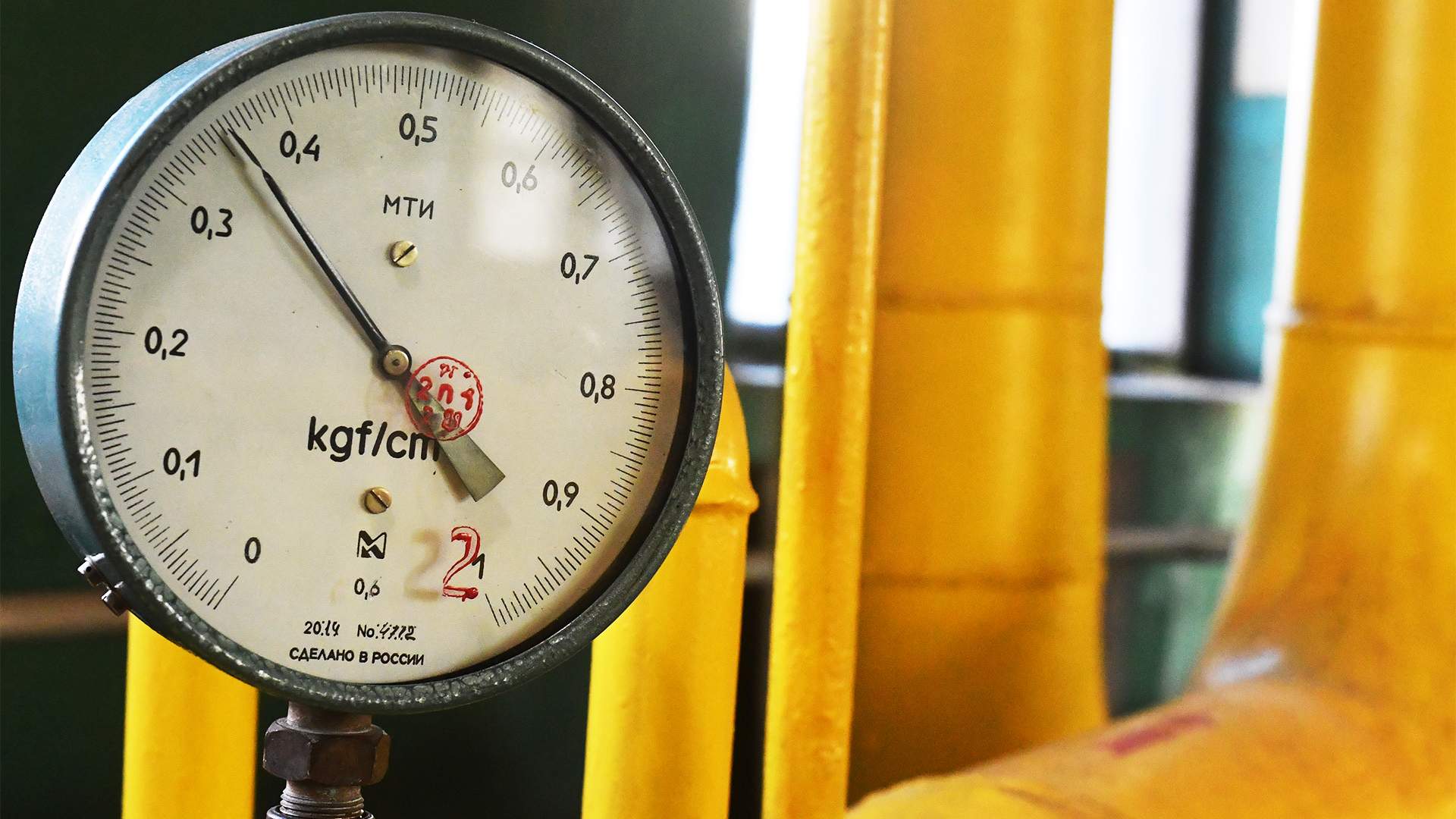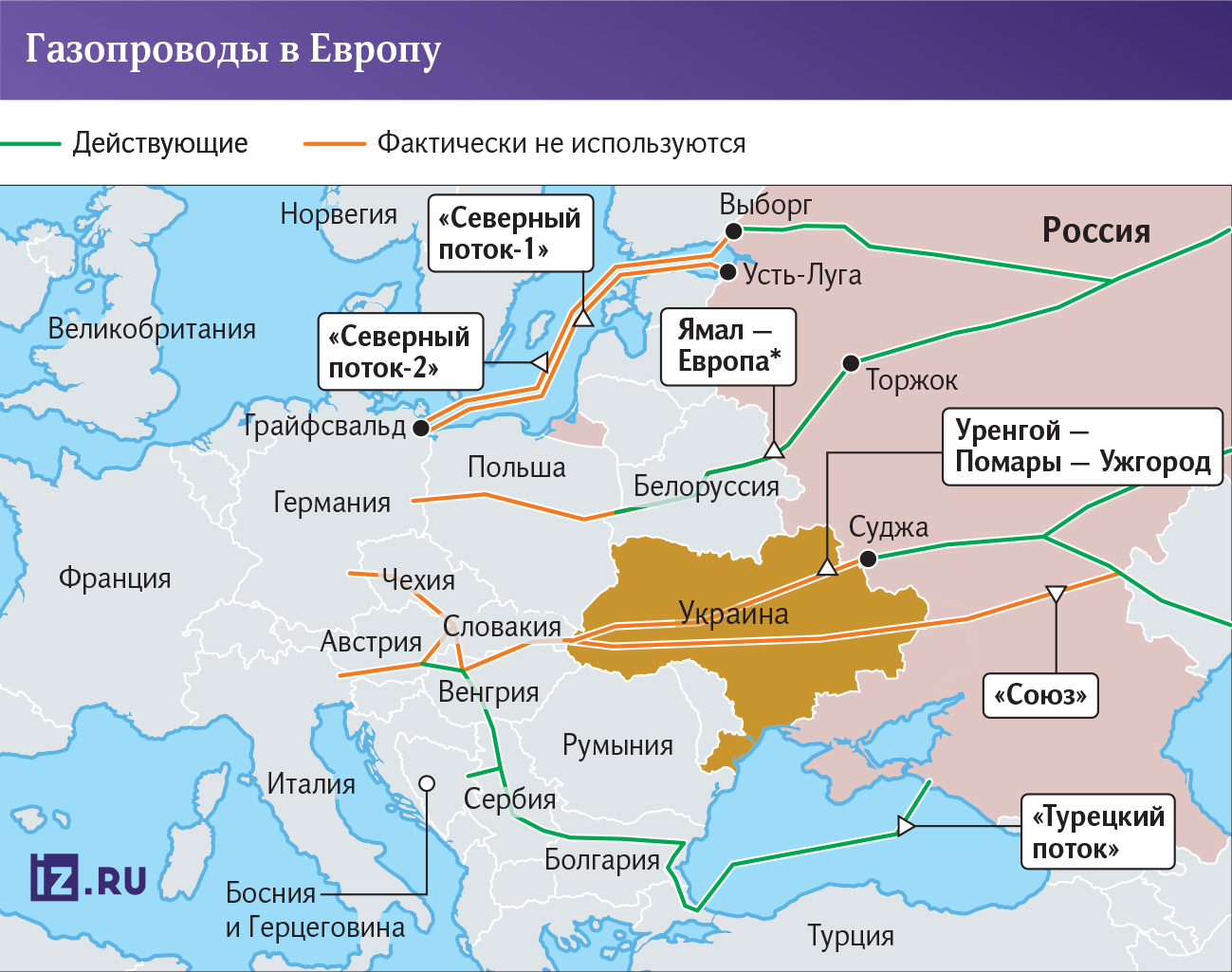Tight contract: Republika Srpska aims for a long contract with Gazprom

Republika Srpska intends to conclude a long-term contract for gas supplies with Gazprom. This was announced to Izvestia by the press service of the Entity's government. The current contract is valid until 2025, the RS authorities consider its terms favorable. The growing industry of Republika Srpska requires increased gas supplies, but Sarajevo is blocking the construction of a new gas pipeline from Serbia. Belgrade, whose contract with Gazprom expires in March 2025, is also negotiating a new agreement. Experts believe that possible sanctions from the West will not affect the conclusion of contracts with the Balkan republics. At the same time, they have found themselves in a more favorable economic position than the countries that previously received Russian gas in transit through Ukraine.
Where Republika Srpska gets gas from
The authorities of Republika Srpska (part of Bosnia and Herzegovina) intend to conclude a long-term contract with Gazprom for Russian gas supplies. This was announced to Izvestia by the public relations bureau of the general secretariat of the RS government.
- The cooperation between Russia and Republika Srpska in the field of gas supply is of great importance for our energy sector, and that is why we are striving to maintain the conditions we have had so far. We had the most favorable gas price in the region," emphasized the Republika Srpska government. - Our goal is to obtain a long-term gas supply contract, and we are confident that Gazprom will support the agreements of all [constituent peoples] in Bosnia and Herzegovina. We would like to remind you that thanks to good relations between Republika Srpska and Russia, all citizens of Bosnia and Herzegovina have favorable gas prices.
A long-term contract is usually considered to be a contract concluded for a period of more than 5 years. For example, in September 2021 Gazprom and the Hungarian company MVM CEEnergy signed two contracts for the supply of 4.5 billion cubic meters of gas per year for 15 years.
Bosnia and Herzegovina (BiH) is a rather complex state entity, which consists of two main parts (entities) - the Croat-Muslim Federation of Bosnia and Herzegovina and the Republika Srpska. In addition, the Brcko District is located between them and is internationally administered.
The population of the state consists mainly of Bosniaks (50.1%), Serbs (30.8%) and Croats (15.4%). Bosniaks practice Islam, Serbs practice Orthodoxy, and Croats practice Catholicism. In addition, Serbs use the Cyrillic alphabet, while Croats and Bosniaks use the Latin alphabet.
The three main peoples are proportionally represented in the system of state government. Each entity has its own constitution, legislative, executive and judicial branches.
In 2023, Russian Deputy Prime Minister Alexander Novak noted that Republika Srpska receives about 30-40 million cubic meters of gas per year. Russian gas is also used by the Croatian-Muslim Federation of Bosnia and Herzegovina, the approximate volume is several hundred million cubic meters, Deputy Director of the Institute of National Energy Alexander Frolov told Izvestia.
- "The supplies go through Turkish Stream, then through Bulgaria via the gas transportation system built for gas supplies to consumers in Europe," he specified.
Earlier, Republika Srpska received Russian gas through Ukraine, Hungary and Serbia. At the same time, since 2021, after the commissioning of the Balkan Stream, deliveries are carried out only through Turkey and the Balkans, bypassing Ukraine. In 2023, Banja Luka signed a contract with Gazprom for a period until 2025, with settlements taking place in rubles at a favorable price for the republic.
"Gazprom" can conclude a long-term contract with Republika Srpska, says Stanislav Mitrakhovich, an expert of the National Energy Security Fund and the Financial University under the Government of the Russian Federation.
- I don't see any restrictions here. I think that our cooperation will be relevant. In the future, if Bosnia and Herzegovina becomes a member of the EU, such obstacles may arise," the expert told Izvestia.
Izvestia sent a corresponding request to Gazprom.
In the future, the volume of gas supplies to the Republic of Srpska may reach 1-1.5 billion cubic meters, Alexander Novak said earlier. To increase supplies it is necessary to build a new gas pipeline from Serbia to Republika Srpska, but for about 15 years this project has been blocked by Sarajevo. At the same time in BiH itself, under pressure from the US, they plan to open a gas pipeline to the Croatian island of Krk, which will allow Sarajevo to receive liquefied natural gas (LNG) from the local terminal. In the long term, the sides may resolve the conflict by granting mutual permission to build the pipelines, Republika Srpska President Milorad Dodik told Izvestia earlier.
Increased gas supplies are necessary for the development of Republika Srpska's industry - it accounts for about 20% of GDP (in 2021-2023 the growth of the entity's economy amounted to more than 12%). In addition, a long-term gas contract with Gazprom can be seen as a tool to ensure the economic independence of the Republic. Earlier this year, Milorad Dodik stated that "the political goal of the Republika Srpska leadership is its independence".
However, Republika Srpska's secession from Bosnia and Herzegovina remains unlikely in the near term, program manager of the Russian International Affairs Council Milan Lazovic told Izvestia. This scenario would lead to a violation of the Dayton Accords and destabilize the situation in the region. If hypothetically this happens, Serbia will be forced to increase its support for the Bosnian Serbs, for example, to form a union state along the lines of Russia and Belarus or to admit them into its membership.
Negotiations between Serbia and Gazprom
Russian gas supplies to Republika Srpska also depend on Serbia's position to a large extent. The current gas contract between Gazprom and Serbia expires in March 2025. Belgrade is already negotiating a new agreement until 2028. The total gas consumption in Serbia in 2023 amounted to 2.8 billion cubic meters, said Dusan Bajatovic, director of Srbijagas. Moreover, the republic needs more and more blue fuel due to the developing economy: the country's GDP growth amounted to 3.8% in 2023 and 4.5% in the first and second quarters of 2024.
At the end of 2024, Serbian President Aleksandar Vucic said that before the end of Joe Biden's term, the United States intends to impose sanctions against the Serbian oil and gas company NIS (Naftna industrija Srbije), 56.15% of which is owned by Russia's Gazprom Neft and Gazprom. By threatening to impose restrictions, Washington is trying to veto new energy projects and demonstrate its supremacy in the Balkans, said Lena Milojevic, chairman of the board of the Nikola Tesla Serbian Union, in a commentary for Izvestia.
To avoid restrictions, the Serbian leader offered to buy out Gazprom's and Gazprom Neft's stakes in NIS for about €600 million. However, possible sanctions will not affect the conclusion of gas contracts with Russia, since Srbijagas is in charge of them, Alexander Frolov said.
- Gas supply contracts are concluded by Srbijagas, which has nothing to do with this story," the expert said. - Russian companies invested about €3.5 billion in NIS in order to develop and reconstruct oil refining facilities, which can now be called one of the best in the world - the depth of refining is 99%. The company has become profitable from a loss-making enterprise, and it generates 12 to 15% of the Serbian state budget revenues.
Rising gas prices in Europe
It is worth noting that the countries importing gas from Russia via the Turkish Stream have found themselves in a more favorable position than those who received fuel by transit through Ukraine. Last year, Kiev refused to extend the transit contract with Gazprom, so from January 1, Moldova and Transnistria, in particular, were left without Russian pipeline gas.
At the end of last year, Chisinau and Tiraspol introduced a state of emergency in the energy sector. In early January, Moldova announced a doubling of electricity and heat tariffs. At the same time, the situation in neighboring Transnistria is more complicated.

Earlier, the DMR government said that Transnistria was in a state of not only energy but also humanitarian crisis. More than 1.5 thousand high-rise buildings were left without heating and hot water and more than 70,000 private homes were left without gas immediately after the Ukrainian transit stopped. Heating was also cut off in 131 schools and 147 kindergartens. Almost all industrial enterprises, except for foodstuffs, stopped working. Later, electricity outages began in the DMR, and on January 3, the authorities introduced a fan shutdown, which is now carried out twice a day for four hours.
On January 1, the Moldavskaya TPP in Transnistria switched from gas to coal to generate electricity, which, however, only temporarily solves the energy problem. Coal reserves at the TPP will last until mid-February at the most.
Due to Kiev's decision, the European market has lost about 15bn cu.m. of gas annually. Against the background of the cessation of Ukrainian transit, the gas price in Europe exceeded $500 per 1,000 cu.m. for the first time since 2023. Slovak Prime Minister Robert Fitzo earlier pointed to a possible increase in gas prices in Europe, which would lead to annual losses for the EU in the amount of €60-70bn.
Central European countries are trying to influence Kiev. On January 9, Robert Fitzo met with European Commissioner for Energy Dan Jorgensen, but Ukraine 's representatives did not participate. Slovakia has threatened Ukraine with retaliatory measures to stop the transit of Russian gas. As Reuters notes, Fitzo said that in addition to reducing aid to Ukrainian refugees, Bratislava could cut off emergency supplies of electricity, humanitarian aid and block EU votes needed by Kiev. Ukraine's decision to stop gas transit to Europe is also condemned by Hungary. Hungarian Foreign Minister Péter Szijjártó earlier emphasized that it contradicted Kiev's aspirations to join the EU.
Переведено сервисом «Яндекс Переводчик»








